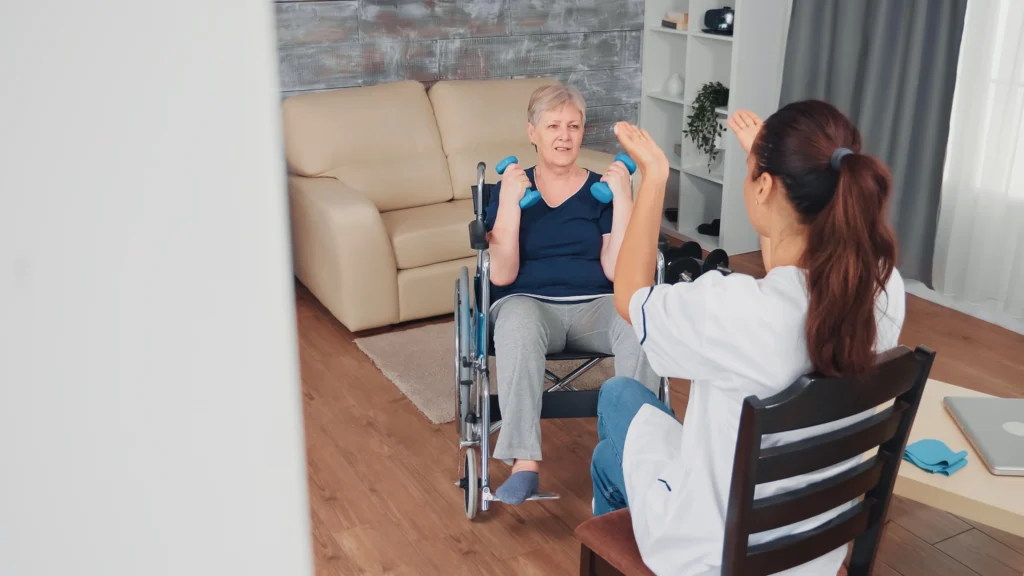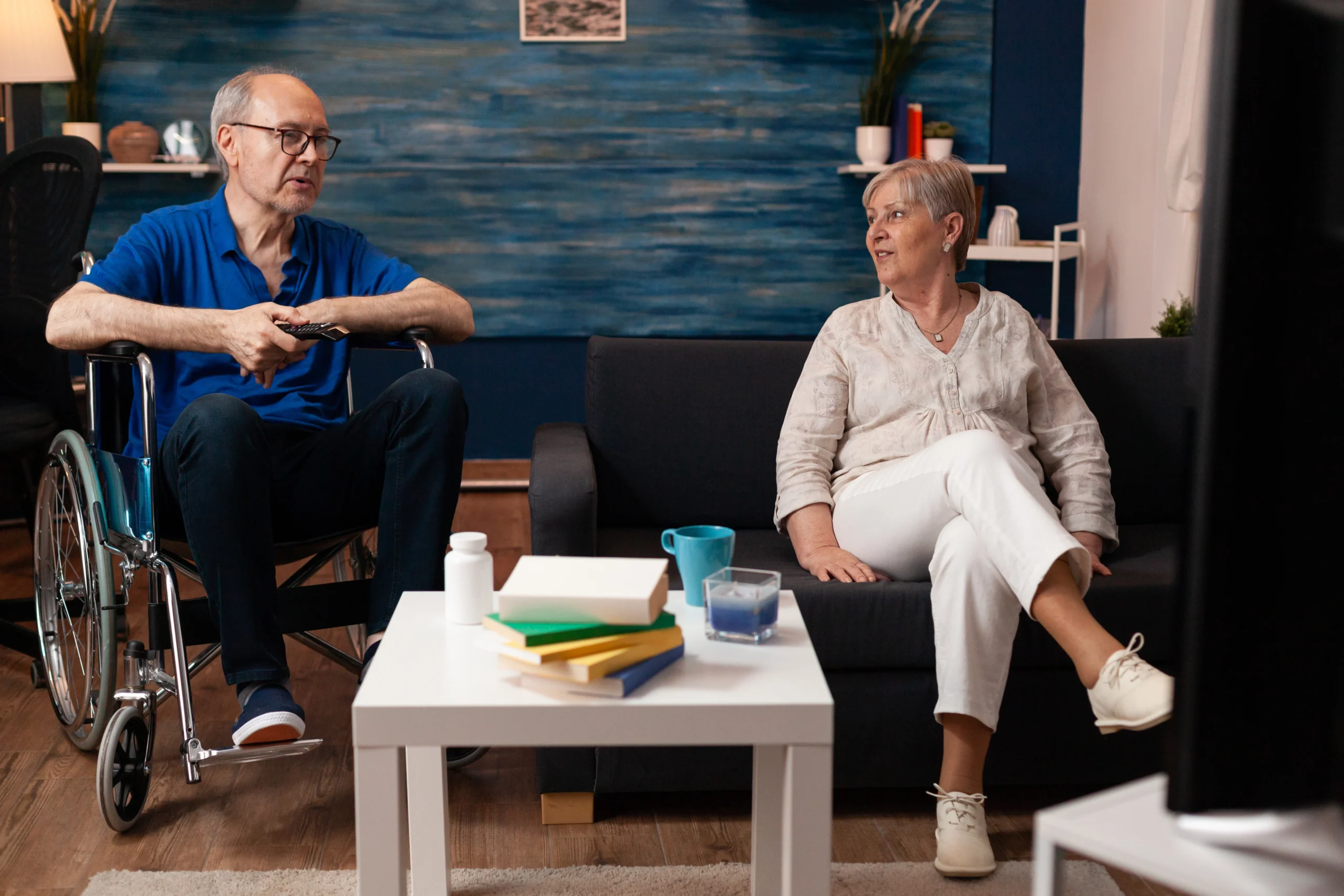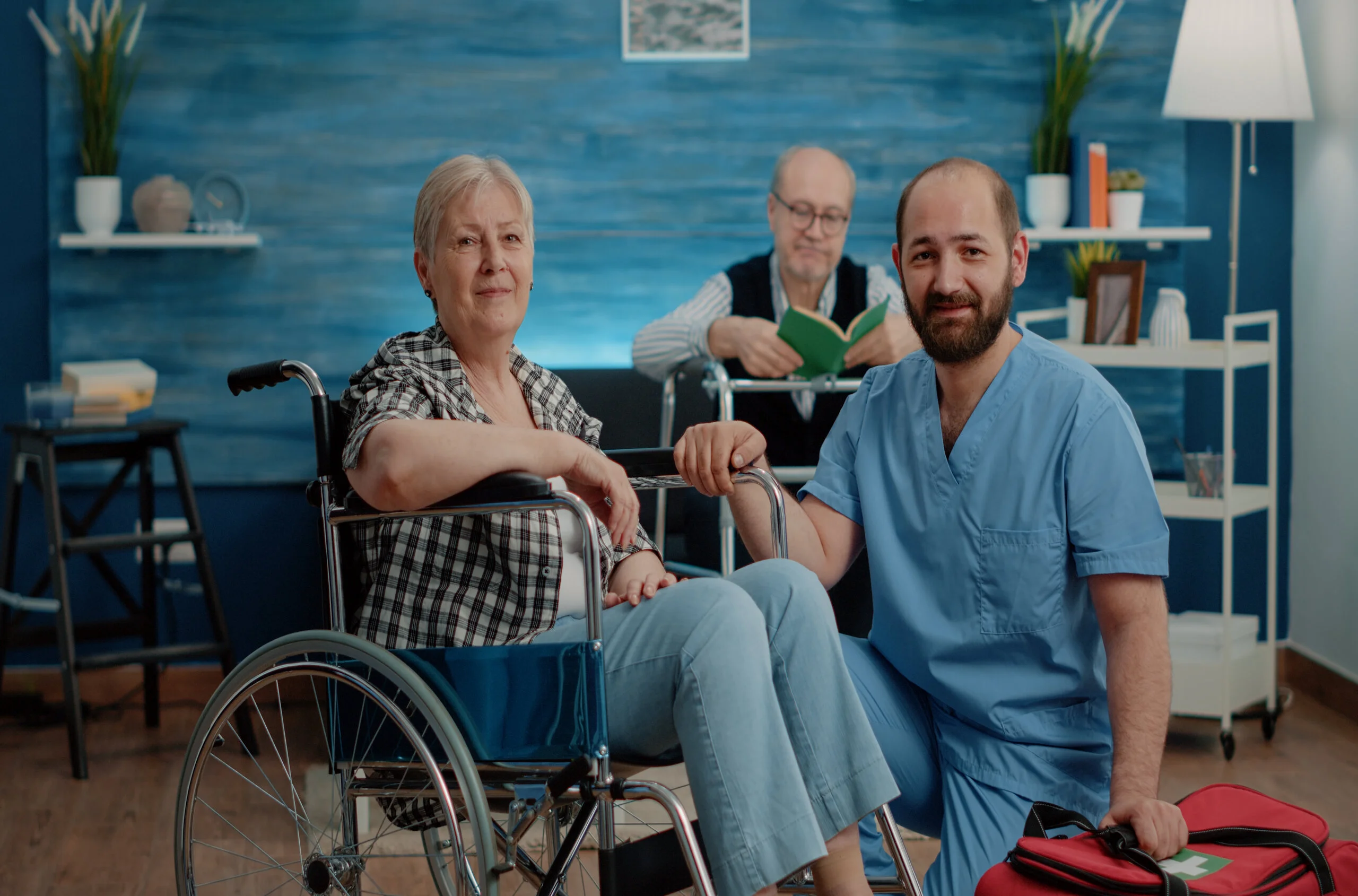The independent living support has led to major advancements in rights and opportunities for people with disabilities. However, the various programs and policies that have emerged from this movement can also be confusing, such as the two commonly misunderstood terms -“ Supported Independent Living ” (SIL) and “Specialist Disability Accommodation” (SDA). Although they may sound similar, these programs refer to very different forms of assistance for people with disabilities.
What is Supported Independent Living (SIL)?
SIL stands for Supported Independent Living. It refers to housing and support services that assist people with disability to live independently in the community.
key features of SIL includes:
- SIL provides people with disability the access to housing in their general community. This can be private rental housing, social housing, home ownership etc.
- SIL provides support services to assist people to maintain their tenancies and live as independently as possible. Support services may include help with tasks like cooking, cleaning, shopping, transport, managing finances, and healthcare.
- The level of ndis supported independent living provided is flexible and tailored to each individual’s needs and goals. Additional support is provided when needed and scaled back when the person gains more independence.
- SIL aims to maximise people’s independence, choice, and inclusion in the community. The person remains completely responsible for their own living arrangements and tenancy.
- SIL is funded through the National Disability Insurance Scheme (NDIS). NDIS participants can use their NDIS funding packages to purchase SIL.

What is Specialist Disability Accommodation (SDA)?
SDA stands for Specialist Disability Accommodation. It refers to specially designed housing for NDIS participants who require specialist housing solutions.
Key features of SDA include:
- SDA provides accessible, specially constructed housing for individuals with severe functional impairment or extensive support needs.
- SDA is for NDIS participants who are unable to live independently and need specialist housing solutions. This may include people with significant physical disability, very high care needs, complex behaviours, or other issues.
- SDA is designed to be highly accessible with features like wheelchair access, hoists, sensory rooms, assistive technology, and modifications to support independent living.
- SDA provides an accessible, safe, and stable long-term residence, along with on-site support for daily living. It is not intended for short-term or transitional housing purposes.
- SDA providers are responsible for tenancy management, maintaining the accessible housing, and coordinating necessary supports. Individuals served are considered tenants and are afforded protections under tenancy laws.
- SDA receives separate funding from the NDIS in the form of an SDA payment. This covers the cost of the housing. NDIS also provides funding for ongoing disability support services.
Differences Between SIL and SDA
While SIL and SDA both provide housing-related support for people with disability, there are some key differences:
| Supported Independent Living | Specialist Disability Accommodation |
|---|---|
| SIL is for people who can live independently with support | SDA is for people who require specialist housing who cannot live independently. |
| SIL provides flexible supports that come and go as needed. | SDA provides 24/7 on-site assistance. |
| SIL grants the individual responsibility for their own housing and tenancy. | SDA providers manage tenancy and housing. |
| SIL utilises existing housing in the community. | SDA provides purpose-built, highly accessible housing. |
| SIL aims to build independent living skills. | SDA aims to provide a stable long-term home with supports. |
| SIL is funded through the individual’s NDIS package. | SDA has separate NDIS funding covering housing costs. |
Eligibility Criteria
The eligibility criteria are also different for SIL and SDA:
SIL Eligibility:
- The individual must be a NDIS participant with funding allocated for support services in their NDIS plan.
- They must have capacity to maintain a tenancy either independently or with support.
- While they do not require specialist housing but may need independent living support to sustain a tenancy.
SDA Eligibility:
- The person must be a NDIS participant approved for Specialist Disability Accommodation funding in their NDIS plan.
- They must require specialist housing solutions due to extreme functional impairment or very high support needs.
- They are unable to safely live in mainstream housing even with support.
- They must provide evidence confirming their need for Specialist Disability Accommodation housing.
When to Choose SIL or SDA?
So, when should someone choose SIL or SDA? Key these tips in mind:
- Supported Independent Living generally allows more independence and community living for those who need it.
- Specialist Disability Accommodation provides more support and accessibility for those with very high needs.
- Think about your lifestyle goals, abilities, support needs, and accessibility requirements.
- Seek professional assessment if it is unclear which option is more suitable.
- You can try Supported Independent Living and request Specialist Disability Accommodation later if you discover you need a higher level of support.
- Choose Specialist Disability Accommodation if safety, accessibility, and intensive support are your top priorities.
- Opt for Supported Independent Living if maximising independence and community living are your primary goals.
- Make sure you fully understand the differences before choosing what is right for you.

Accommodation Options in NDIS Supported Independent Living
Supported Independent Living accommodations come in various forms to cater to the specific needs and preferences of people with disabilities. The approach of NDIS Supported independent living is to aim towards providing arrangement that suit different individual’s requirements, ensuring a personalised approach to living arrangements. From shared living spaces to self-contained units, there are options to accommodate various lifestyles and support needs. This flexibility enables individuals to choose the arrangement that best fits their preferences.
Shared living arrangements
In shared living arrangements, individuals with disabilities share a home or apartment with support workers or caregivers who are readily available to assist with your needs. These setups offer great flexibility, allowing individuals live in a family-like environment with consistent support. The aim is to create a warm and stable atmosphere where individuals can enjoy companionship while receiving personalised assistance to meet their specific needs.
Individual living arrangements
Individual living arrangements provide individuals with their own self-contained unit or apartment, offering maximum privacy and freedom. This type of arrangement offers you own space while still having access to on-site support services whenever you need them. They are perfect for those who cherish independence but could use a helping hand now and then with tasks like keeping things tidy, managing finances, or getting around. It encourages self-sufficiency while providing a comforting safety net of support personalised just for you.
Group Homes
Group homes, also known as congregate living facilities, offer 24/7 support and supervision for individuals with higher support needs. These homes are staffed by trained support workers who provide round-the-clock assistance with personal care, medication management, and other daily tasks.

Accommodation Options in NDIS Specialist Disability
Cluster housing
This is a small group of apartments or houses that are clustered together on the same street or neighbourhood. Residents have their own private living space but share some communal facilities. There is usually 24/7 support staff on site.
Co-residential housing
This is where a small number of people with disabilities share a house with live-in support workers. Each person has their own bedroom but share communal living areas.
Host family model
This living arrangement enables a person with disability to live with a family who provides accommodation and support. The individual becomes integrated into the family’s home life.
Intentional communities
These are small intentional communities set up specifically for people with disabilities. Multiple households are clustered together and share facilities, emphasising strongly on community living.
Farmstead communities
These are small farm-based communities for people with disabilities. Residents live and work together on a farm property with support staff. Daily farm activities provide meaningful occupation.
Campus style
These living set-ups encompass larger disability accommodation campuses with clusters of units, apartments, or houses. They offer on-site facilities like pools, gyms, and cafes, along with 24/7 support staff services.
Individual supported living
A person lives alone in their own home with regular support from disability support workers, allowing independence with support.
Co-housing model
People with and without disabilities live together in a community with private and shared facilities. This set-up emphasises mutual support and social connection.
Future Outlook
Looking ahead, the future of disability services looks promising, with ongoing efforts to improve access and affordability for individuals with disabilities. Emerging trends such as the adoption of assistive technologies and the promotion of inclusive housing designs are expected to further enhance the independence and well-being of NDIS Supported independent living participants. These advancements not only signify progress but also demonstrate a collective commitment to fostering inclusivity and empowerment within the disability community.
Navigating disability services can be confusing with all the acronyms. Two common options are Specialist Disability Accommodation and Support independent living.
Choosing between SDA and SIL depends on each person’s needs and goals. Consulting a professional can help weigh the pros and cons of each. The right support model allows people with disabilities to pursue their aspirations, regardless of background. Focusing on key differences in housing, services and funding makes the options clearer. Most importantly, disability services should empower people to live the life they want.
At TK Community Care Services, our purpose is to empower individuals with disabilities to lead fulfilling and independent lives through our NDIS Supported independent living and other disability services in Darwin. We are committed to providing personalised support that promotes autonomy, inclusion, and well-being for all our clients. Our vision is to create a supportive community where individuals with disabilities are valued, respected, and empowered to achieve their goals and dreams. Through our commitment to excellence and compassion, we aim to make a positive impact on the lives of those we serve and the community as a whole.



